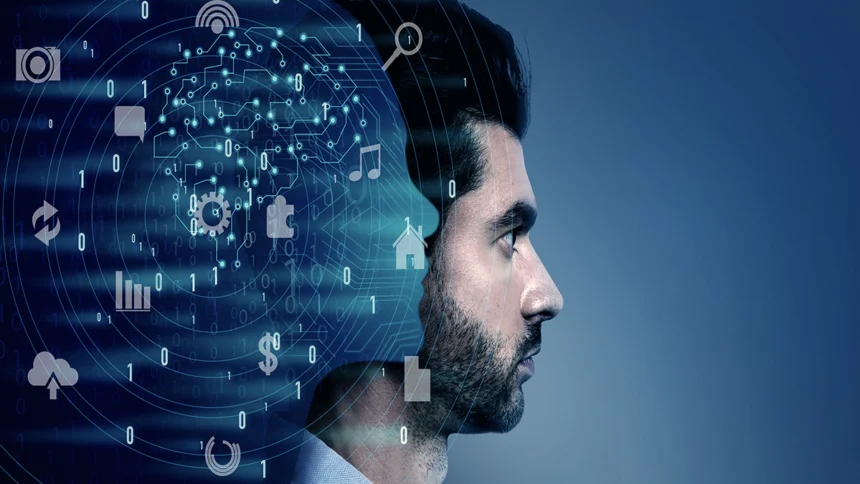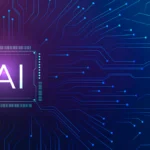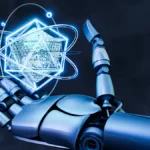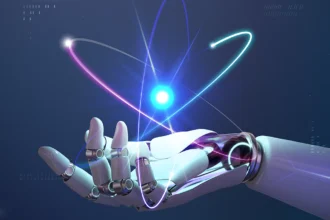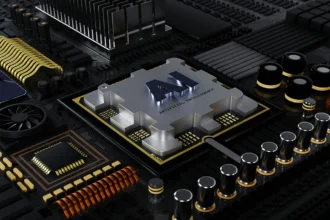Are you curious about the future of technology and how it’s reshaping our world? Have you ever wondered how artificial intelligence (AI) is being used in innovative ways across various industries? With the rapid evolution of technology, understanding modern AI approaches is crucial for anyone who wants to stay informed and competitive. In this article, we will explore various facets of modern AI, including machine learning, deep learning, natural language processing, automation, and ethical AI. Get ready to dive into the exciting realm of AI applications that are transforming our lives today!
Understanding Modern AI
Artificial intelligence encompasses a broad range of technologies designed to simulate human intelligence. The core idea is to enable machines to learn from experience, adapt to new inputs, and perform tasks typically requiring human intelligence. To truly appreciate modern AI, we must first understand its foundational concepts.
Key Concepts in Modern AI
- Machine Learning (ML): A subset of AI focused on algorithms that enable computers to learn from and make predictions based on data. ML models improve automatically through experience without being explicitly programmed.
- Deep Learning (DL): A specialized branch of ML that uses neural networks with multiple layers (deep neural networks) to analyze various factors of data. It excels in processing unstructured data such as images and text.
- Natural Language Processing (NLP): This technology allows computers to understand, interpret, and generate human language. NLP powers applications like chatbots, translation services, and voice-activated assistants.
- Automation: AI automates repetitive tasks, enhancing efficiency in various sectors, from manufacturing to customer service.
- Ethical AI: This approach emphasizes the need for AI systems to be designed and implemented in a way that ensures fairness, accountability, and transparency.
The Rise of AI Applications
As technology advances, the applications of AI continue to expand into various sectors. Here’s a detailed look at some prominent applications of modern AI:
1. Healthcare
AI has made significant strides in the healthcare industry. Modern AI applications are enhancing patient care, improving diagnosis accuracy, and streamlining administrative tasks.
| Application | Description |
|---|---|
| Predictive Analytics | Analyzes patient data to predict health risks. |
| Diagnostic AI | Uses imaging and data analysis for accurate diagnosis. |
| Virtual Health Assistants | Chatbots and AI assistants provide medical advice and reminders. |
| Drug Discovery | AI algorithms accelerate the identification of new drug candidates. |
2. Finance
In the finance sector, AI is transforming how we manage investments, detect fraud, and enhance customer service.
| Application | Description |
|---|---|
| Algorithmic Trading | AI-driven trading algorithms execute trades at optimal times. |
| Fraud Detection | Identifies unusual patterns in transactions to prevent fraud. |
| Customer Service Chatbots | AI chatbots handle customer inquiries 24/7, providing instant support. |
3. Retail
The retail industry leverages AI for personalized shopping experiences and improved supply chain management.
| Application | Description |
|---|---|
| Recommendation Systems | Suggests products to customers based on their preferences. |
| Inventory Management | Predicts stock levels and automates reordering processes. |
| Customer Insights | Analyzes consumer behavior to optimize marketing strategies. |
4. Transportation
AI is revolutionizing the transportation sector by enhancing safety and efficiency.
| Application | Description |
|---|---|
| Autonomous Vehicles | AI systems enable self-driving cars to navigate safely. |
| Traffic Management Systems | Analyzes traffic patterns to optimize flow and reduce congestion. |
| Predictive Maintenance | Uses AI to predict equipment failures and schedule maintenance. |
5. Education
In the education sector, AI is being utilized to create personalized learning experiences and enhance administrative efficiency.
| Application | Description |
|---|---|
| Adaptive Learning Systems | Adjusts educational content based on student performance. |
| AI Tutors | Provides additional support and resources for students. |
| Administrative Automation | Streamlines enrollment, grading, and scheduling processes. |
Modern AI Approaches in Detail
Let’s delve deeper into some of the most influential modern AI approaches that are shaping the future.
1. Machine Learning
Machine learning is at the heart of most modern AI applications. It involves the development of algorithms that allow computers to learn from and make predictions based on data. Here are some key ML techniques:
- Supervised Learning: Involves training a model on labeled data, allowing it to predict outcomes based on new input.
- Unsupervised Learning: Deals with unlabeled data, aiming to identify patterns or groupings within the data.
- Reinforcement Learning: Focuses on teaching models to make decisions through trial and error, receiving rewards or penalties based on their actions.
2. Deep Learning
Deep learning is a revolutionary subset of machine learning that uses neural networks to analyze vast amounts of data. Its key features include:
- Multi-layer Neural Networks: Capable of learning hierarchical representations of data, enabling complex pattern recognition.
- Image and Speech Recognition: Deep learning excels in recognizing patterns in images and speech, leading to advancements in facial recognition and voice-activated systems.
- Natural Language Processing (NLP): DL has significantly improved NLP tasks, such as sentiment analysis, translation, and text generation.
3. Natural Language Processing (NLP)
NLP combines linguistics and AI to enable machines to understand and interact using human language. Its applications include:
- Sentiment Analysis: Determines the emotional tone behind words, commonly used in social media monitoring and brand management.
- Machine Translation: Automatically translates text from one language to another, enhancing global communication.
- Chatbots and Virtual Assistants: AI-powered systems that provide instant responses to user queries, improving customer support.
4. Ethical AI
As AI continues to proliferate, the importance of ethical considerations grows. Ethical AI aims to develop systems that:
- Ensure Fairness: Prevent biases in AI algorithms, ensuring equitable outcomes for all users.
- Promote Transparency: Provide clear explanations of AI decision-making processes to enhance trust and accountability.
- Protect Privacy: Safeguard user data and maintain confidentiality in AI applications.
The Future of Modern AI
The future of AI looks promising, with advancements continually reshaping various industries. Some trends to watch include:
1. Increased Automation
As AI continues to evolve, automation will play a pivotal role in enhancing efficiency across industries. From manufacturing to customer service, the ability to automate repetitive tasks will free up human resources for more complex decision-making roles.
2. Enhanced Personalization
Modern AI will further improve personalization in customer interactions. With more advanced algorithms, businesses can tailor experiences to individual preferences, leading to higher customer satisfaction and loyalty.
3. Greater Collaboration between Humans and AI
The future will see more collaboration between humans and AI systems, combining human creativity and intuition with AI’s analytical power. This synergy can lead to innovative solutions to complex problems.
4. Continued Focus on Ethical AI
As AI systems become more integrated into daily life, the push for ethical AI will grow stronger. Organizations will need to prioritize transparency, accountability, and fairness in their AI initiatives to build trust among users.
Frequently Asked Questions (FAQs)
What is the difference between machine learning and deep learning?
Machine Learning is a broader field that encompasses various algorithms, including supervised and unsupervised learning, while Deep Learning is a subset of machine learning that specifically uses neural networks with multiple layers to analyze large datasets.
How does natural language processing work?
Natural Language Processing combines computational linguistics and machine learning to enable computers to understand, interpret, and generate human language. It involves techniques like tokenization, parsing, and semantic analysis.
What are some examples of AI applications in daily life?
AI applications in daily life include virtual assistants (like Siri and Alexa), recommendation systems (on platforms like Netflix and Amazon), and chatbots used in customer service.
Why is ethical AI important?
Ethical AI is essential to ensure fairness, transparency, and accountability in AI systems. As AI becomes more integrated into society, addressing biases and ensuring that AI serves all users equitably is crucial for building trust.
What industries are most impacted by AI?
Industries significantly impacted by AI include healthcare, finance, retail, transportation, and education. Each sector benefits from AI’s ability to analyze data, improve efficiency, and enhance customer experiences.
READ MORE : Top 10 AI Apps to Simplify Your Life in 2024
Conclusion
As we’ve explored in this article, modern AI approaches are reshaping the world in unprecedented ways. From machine learning and deep learning to natural language processing and ethical AI, the possibilities are vast and ever-evolving. By understanding these concepts and their applications, you can better navigate the future of technology.
Thank you for reading! If you found this article helpful, join our community for more updates on the latest trends in technology, AI, and more. Subscribe to our newsletter, follow us on social media, and enable push notifications to stay informed! Your journey into the fascinating world of AI has just begun.


